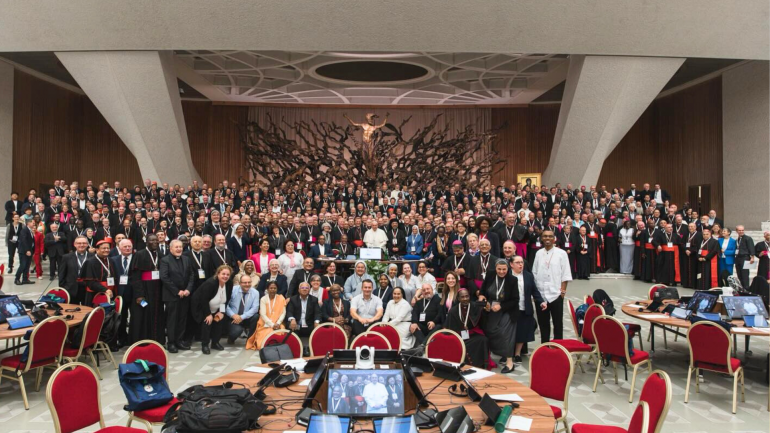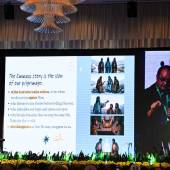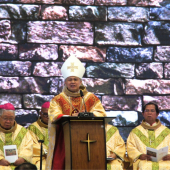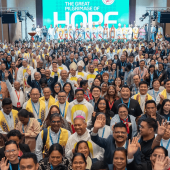Empowering the Laity: Key Canonical insights from the 2024 Synod

The 16th Synod of Bishops concluded its second session on October 26, 2024, with the publication of a Final Document of 155 sections, in line with Pope Francis’s directive.
Uniquely, Pope Francis chose to adopt this document directly (Canon 343), foregoing the customary Post-Synodal Apostolic Exhortation, an act that underscored the Church’s commitment to synodality.
Stable Lay Ministries: Instituted and Non-Institutional
A missionary, synodal Church emphasizes lay ministries beyond Holy Orders, which may be formally instituted or remain non-institutional. Key instituted ministries include lector, acolyte (per Spiritus Domini), and catechist (Antiquum ministerium).
Alongside these, stable lay roles authorized by the competent authority—such as coordinating small communities, leading prayer, and organizing charitable work—should be publicly recognized for their contributions to the Church’s mission.
Likewise, the roles of Extraordinary Ministers of the Eucharist and leaders of Sunday services in priest-absent communities need further promotion.
Participatory Bodies
Enhanced lay involvement in decision-making is encouraged through structures like the Diocesan Synod, Diocesan Pastoral Council, Parish Pastoral Council, and Finance Committees at both the diocesan and parish levels.
The Synod advocates for optional bodies to become standard practice and for mandatory Canonical bodies to be uniformly established under particular law.
Accountability and Transparency
The Synod recommends the Diocesan Synod (Canons 460–468) as a vital platform for regular consultation between bishops and their communities.
This body should enable bishops to report transparently on pastoral activities, safeguarding initiatives, and financial matters. Strengthened Canonical provisions would facilitate consistent, structured engagement with the faithful.
Decentralization and Provincial Councils
To achieve effective decentralization, there is a need to revitalize provincial and plenary councils, which serve as vital forums for decision-making. Church authorities must respect the outcomes of consultations, only diverging from consensus when necessary, in accordance with Canonical guidelines (CIC Canon 127, §2, 2°; CCEO Canon 934, §2, 3°).
Seminary Formation
The Synod calls for seminary formation to embrace a synodal model, emphasizing inclusivity and community integration, with a significant role for women in formation processes.
This approach seeks to prepare candidates for collaboration across Church structures, promoting ecclesial discernment. A revised Ratio Fundamentalis Institutionis Sacerdotalis (Canon 241) would address these formation needs.
Lay Leadership in Ecclesial Roles
Beyond prescribed participatory structures, the Synod advocates for lay access to leadership roles within dioceses, seminaries, institutes, and theological faculties.
It recommends involving lay individuals with charisms and Canonical expertise in decision-making processes, as well as enhancing respect for ecclesial employees' rights.
Revisiting “Only” in Canon Law
The Synod proposes reevaluating Canon Law’s use of “only” in consultative contexts, which may inadvertently oppose consultative and deliberative roles. Decisions should reflect collaborative discernment, suggesting a review of terms that imply a limited consultative function.
* Father Merlin Rengith Ambrose, from the Diocese of Kottar, serves as a Canon Law professor at St. Peter’s Pontifical Institute in Bangalore and is the Executive Secretary of the CCBI Commission for Canon Law.
Radio Veritas Asia (RVA), a media platform of the Catholic Church, aims to share Christ. RVA started in 1969 as a continental Catholic radio station to serve Asian countries in their respective local language, thus earning the tag “the Voice of Asian Christianity.” Responding to the emerging context, RVA embraced media platforms to connect with the global Asian audience via its 21 language websites and various social media platforms.














